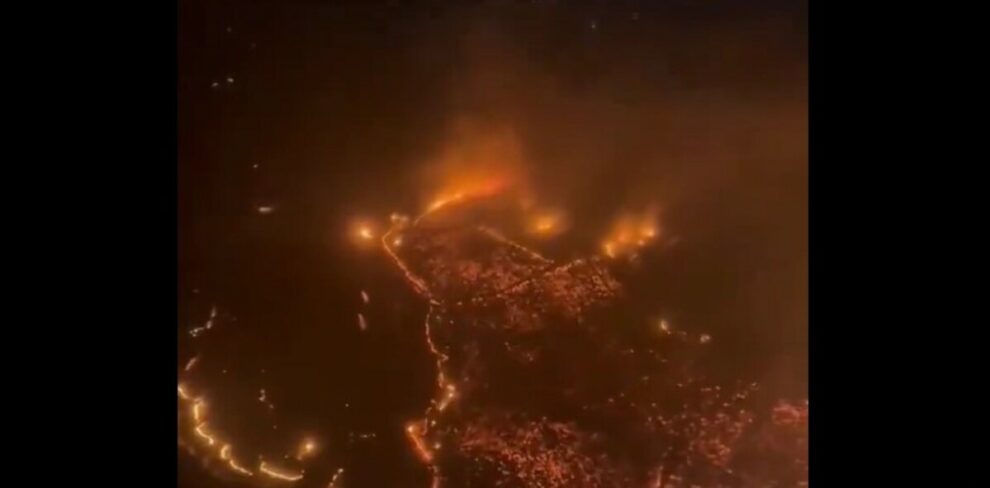Ekolu Brayden Hoapili and his girlfriend escaped the flames that destroyed the Hawaiian town of Lahaina by car, but cannot shake the images of destruction they saw in the rearview mirror.
“Everything is just red. It’s all dust and wind. As strong as hell,” Hoapili, who fled the small, burnt-out resort community on the island of Maui, told AFP.
Sitting on the trunk of the car where the pair have slept since escaping the wildfire that has already claimed more than 50 lives, he recounted what happened.
“I look towards the gas station and there’s a fire right there. People’s land is right next to the gas station, and it’s on fire and I just see smoke, just ash, everything falling from the sky like stuff going up in flames. And I’m like: ‘We gotta go.'”
“I felt like I was gonna die,” said the 18-year-old, who was torn between the joy of survival and the regret of not having stayed to help people.
“I felt powerless. You know, I felt helpless. I couldn’t help nobody.”
“Looking back at it, I left so much people… I know I could have done something, but I couldn’t… because if I did that, I wouldn’t be here.”
At his side, his girlfriend, Sharmaiynne Buduan, 20, spoke of the loss of her hometown.
“The town is the place that I grew up in. The memories I had there. Like, every step that I took in Lahaina, it holds so much memories and seeing all these pictures and videos of my hometown just gone, everything,” she said.
“It breaks my heart. It’s devastating,” she added, looking at the trunk of the car which held their only belongings: toiletries, donated duvets and pillows, and a ukulele.
Lahaina, a town of about 12,000 inhabitants, was a favorite tourist destination for the millions of people who visit Maui each year.
– ‘Very, very sad’ –
Its souvenir shops, restaurants, bars and historic buildings were reduced to ashes by the fast-moving flames, as was a large part of the picturesque marina where thousands of people strolled, watched sunsets and took selfies.
“We saw the smoke, far away. By the time we got in the house — it was like a minute or two — we saw the black smoke coming into our house,” said Sarai Cruz, 28, who worked at one of Front Street’s most popular restaurants.
“So we had to run out, just grab whatever you can, the most important things, and just run. We got in the car and we were able to see the flames from our neighbor’s house, burning already.
“It’s a weird feeling like we still can’t believe it.”
“It’s very, very sad,” said Cruz, who fled with her parents, sister and three children.
“There’s nothing left, it’s gone; it’s a ghost town.”
Parked nearby, in one of the shelters that the authorities opened to house the thousands of people displaced by the inferno, Jose Victoria and his family tried to process what they had experienced.
“This was my house,” the 35-year-old Mexican man said, showing images of a building charred to the ground on his cell phone. “It’s just like, nothing.”
“I lost my home, all my papers, everything,” he added.
“That’s only what I can think: my wife, my son, and my car, that’s it. I didn’t have time for the rest of my stuff: my passport or IDs, nothing.”
